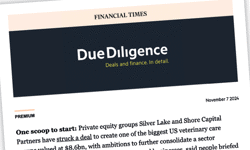Remember 2010 and the way the Times and Sun deserted Gordon Brown, after three terms of querulous backing for Tony Blair and his Chancellor? Remember how the Guardian pitched its tents briefly in the Liberal camp after six decades of supporting Labour? It isn’t just voters who swing back and forth. The papers they read are part of the storm-tossed equation, too. And the turbulence you feel all around you now as May 2015 draws near - sailing up Cameron Creek, sinking in Miliband Mire - is one of the most difficult phenomenons editors (and their owners) have to grapple with. Your vote, like your choice of paper, defines you. So how will things hang together - or swing together - when ballot boxes open? A problem with added UKIP this time round, not to mention a tartan twist.
Political disengagement
The figures that matter most, curiously, seem at first sight to bear no direct relation to newspaper sales. They’re political party membership numbers - and utterly calamitous. In 1953, the zenith of the post-war democratic surge, you could find 2.8 million paid-up Conservative Party members and 1.9 million Labour card carriers in Great Britain. Today, that’s more like 134,000 Tories and 190,000 Labour supporters (rounding up rather than rounding down). UKIP and the Lib Dems hover unhappily round the 40,000 mark. Scotland’s nationalists have staged a post-referendum surge. But, in the broad and in the main, the entire membership of British political parties is under a fifth of what the Tories alone could claim sixty years ago.
Does that decline bear any relation at all to the way that, say, Daily Express sales have slumped twelve times over through those decades - or the obliteration of Sunday tabloid fortunes? Where does shrinking TUC membership in general and collective union membership in particular fit? So many big things, with big numbers attached, have withered through the years. Why do most pundits (shoving real statistics to one side) begin their morose histories of newspaper decline and fall around 2006, as economic crisis weighed in and digital expansion took off? Why can’t we set such trends in a much broader context, including the development of mass TV audiences and the disintegration of old, cloistered communities? No single change, taken alone, provides a total answer. But put them together and the links emerge.
If fewer people can discover the anchors of political allegiance in their lives, so matching attachment to the newspapers and news websites they read is bound to become more problematic, more rootless. Those storms are pounding the shore again. At which point, all manner of other factors - including fear and loathing of the Westminster and the whole London-centric “establishment” made manifest, in short order, by Clacton, Rochester, Strood and Scotland - have to be taken into account.
How 2010 panned out
2010’s electoral sticks and twists were still Westminster-based and essentially, in newspaper terms, introspective. Rupert Murdoch didn’t see his Sun and his Times quit Labour because he was closely in touch with the mood of Motherwell or Macclesfield. No, he talked to Rebekah Brooks and she talked to her political correspondents, who read the polls, saw the party leaders close up, formed a view and passed it down the line. Cameron looked more of a winner than Brown, they said, so had better be endorsed. Clegg, after the TV debates, seemed more of a player than before. Murdoch papers had better be polite to him as well. But Gordon Brown wasn’t going to win. The bottom had fallen out of his, and the world’s, economic policy. If the Guardian was shunning Brown and hailing Clegg, what on earth was the point of News International sticking with an old ally as his support collapsed? It was the Sun wot bottled it.
Note how Rupert Murdoch, far away in America, was calling the shots, even if some of them turned out to be blanks. And note how the Guardian’s totally independent disavowal of Prime Minister Brown a few months before the 2010 left them logically unable to support Labour at election time if Brown was still in charge. (You could say the New Statesman has sealed itself inside the same box this time round). Meanwhile, the rest of the press lined up much as usual. The Mirror group did what it always does: voted Labour, though with more front page enthusiasm for covering celebrity love tangles than bothering about politics. Richard Desmond is a hard-right Conservative geezer: his Express group dutifully echoed their paymaster’s voice. The Mail responded vehemently to the tug of its Conservative roots. The Telegraph stood up and saluted its overwhelming readership predilection yet again. The FT and the Independent, with some distaste, manifested modest distress at the thought of a fourth Labour government but very modest enthusiasm for a Conservative success.
Five years on…
Five passing years of coalition government and economic hardship have made the wheels fly off far faster, however. Some switches are probable going on certain. The Guardian will return to a more traditional advice formula this spring: vote Labour if you can, and Lib Dem if you can’t. The Independent, more elliptically, will probably say much the same. The Murdoch two, Times and Sun, will back Cameron - unless the polls in the campaign’s last week indicate that he can’t win, in which case we may be in for a repeat of the Sun’s Scottish referendum solution: laud the wisdom of the individual voter, leave choice to him, and exit the stage pronto.
Of course, Trinity Mirror will stick with Miliband. Of course, the Sunday Times will stay Tory. Of course, the twin Telegraphs will do the same, though only after much agonising about the wonders of UKIP policy on Europe. (There have been times, these past two years, when you’ve wondered if the whole of Telegraph Towers might tumble to Farage; but the appointment of an editor-in-chief from America who seems more Democrat than Republican and, now, a chief content officer as effective day-to-day editor, who does news but not comment, appears to have left leader lines on auto-pilot). So the most interesting swingers left in town are the FT, struggling to reconcile its disapproval of Labour business policies with its clear dismay over Tory EU drift, and the Desmond Express Group.
In one sense, neither of those choices would seem to matter hugely. FT readers are schooled to know their own minds already. Express readers - elderly, traditionally Tory - have long seemed to drift away from the centre ground where elections are won and lost. But will at least one major national group - two dailies, two Sundays - openly advocate a vote for UKIP (and star Express columnist, Nigel Farage)? Newspaper endorsements carry quite as much importance as by-election victories because they deliver judgments that can’t be wished away 25 seconds later. Richard Desmond has already poured £300,000 of his own money into UKIP coffers. There’s a touch of permanency and hard cash to change here. And as for the FT, the balance between business interest and EU withdrawal is highly significant too. “Red Ed” and no referendum or Immigration-angry Dave and the awful baggage of pulling out? It’s a choice that’s likely to resonate far beyond the Square Mile come 2017, a glimpse of the future.
Setting the news agenda
Now, to be sure, newspaper endorsements only reflect one aspect as elections near. There’s the whole, broader question of news coverage that can drive the agenda in toxic ways. Think Gordon Brown and the “bigoted woman” he snarled over immigration on the 2010 election trail. Think Ed Miliband and bacon sandwiches, pennies for beggars and the whole gamut of toxic tales unleashed, with unnamed MPs and shadow ministers gabbling away to reporters. Think George Osborne and BBC-bashing. News with beady eye, news with an issue to explore, can seem far more potent than the lugubrious conclusions of leader writers: and the sour or supportive assertions of opinion writers - the commentocracy - have a mighty influence, too. They find issues in the general swill of debate; they isolate and examine them; they begin to set the agenda for television and radio, defining the questions to ask, selecting the points of party strength or profound weakness.
Here, it’s conventional to conclude, is where the real power of the political press resides. Here’s how partial takes on reality change the broadcasting view of where statutory impartiality lies. Nevertheless, all these developments have to start somewhere, have to be founded on some fundamental decision-making: and this is where editorials are still so vitally important. They tell a paper’s reader what it believes. They also send signals to the journalists who write and edit that paper. This is where we stand in 2015. This is our basic calculation. Understand that and you - the reporter - can better understand where we’re all heading.
But here’s the true conundrum to be solved in May. The breakdown in party loyalties, and so newspaper loyalties, makes any such understanding horribly difficult. Where’s the direct relationship with voters and readers? On the doorstep, perhaps; but also on the digital doorstep as comment, much of it hostile and scathing, pours in. Editors don’t sit in splendid isolation any longer. They’re part of the online hurly-burly - just like so many of their proprietors. Rupert Murdoch isn’t on Twitter by accident. So if old party allegiances are a fading virtue, how do you make fresh allegiances - let’s call them brand loyalties - in four months’ time?
This article, then, isn’t a series of pat assurances re-affirming that the politics of sixty years ago is still in business. Rather, in its swilling uncertainty, it builds on the lessons of 2010, when Gordon Brown (now exiting the stage) encountered destiny in the midst of a world recession. Because politics is an introverted, Westminster business, because we only check back every half decade or so to see what’s happening, the assumption is one of minimal change, of old poll verities sustained. Alas, no. Labour may be having its leadership problems. The Conservatives may be wallowing in more splits. Mr Richard Desmond may perhaps be sucking his thumb. Welcome to the slipperiest of slopes in a world of suddenly imploding brands. This is turmoil. Perhaps even turmoil as usual.












